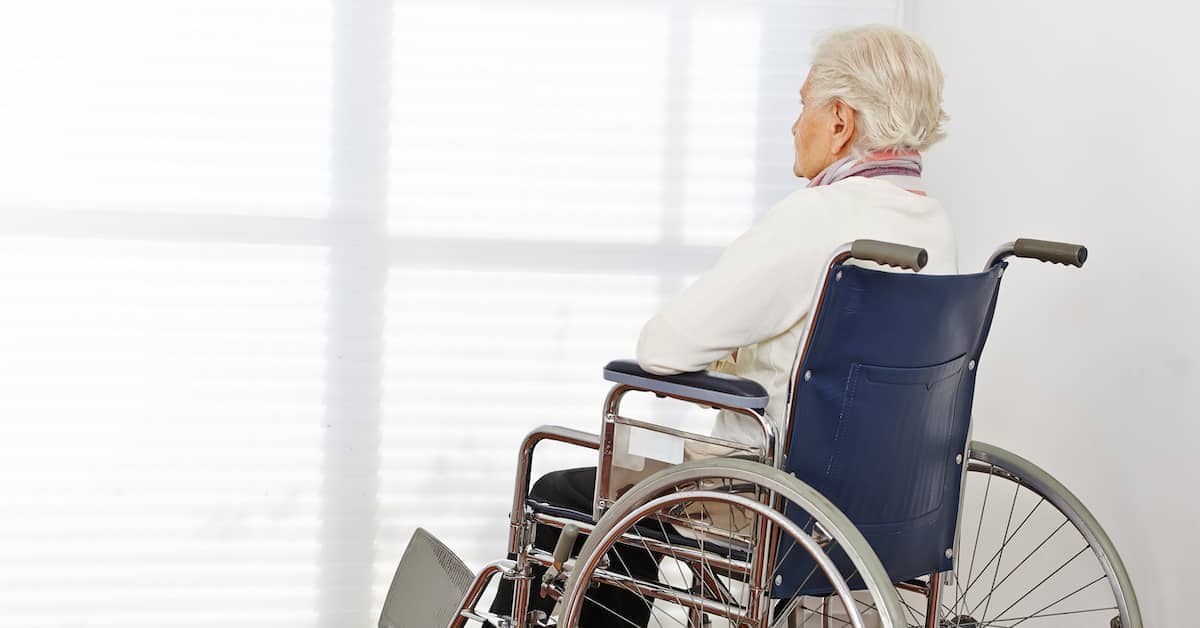What Is Resident Abuse in Nursing Homes?
Abuse of nursing home residents is alarmingly common. According to data published by the National Center on Elder Abuse (NCEA), “at least one in 10” nursing home residents suffer from abuse each year.
However, under no circumstances should nursing home residents ever be forced to cope with the effects of abuse. There is no justification for this kind of abuse, and there are no excuses for nursing homes that allow abuse to occur on their premises.
Nursing home residents and their loved ones need to be aware of the types and signs of abuse. When incidences of abuse occur, they should seek both medical and legal help promptly.
The 5 Types of Resident Abuse in Nursing Homes
There are five types of nursing home resident abuse, all of which have the potential to harm in different ways. All of the following forms of abuse are prohibited under Florida law, and they are all forms of abuse for which legal remedies are available:
1. Physical Abuse
The NCEA defines physical abuse as “the intentional or reckless use of physical force or physical coercion that may result in bodily injury, physical pain, or impairment.” This includes slapping, punching, kicking, shoving, shaking, and other means of physical assault – all of which present particularly serious risks for aging nursing home residents.
In the nursing home setting, physical abuse can also involve the use of unauthorized, excessive, or unlawful means of restraint. This includes use of physical and chemical restraints, as well as confining people to their rooms or bathrooms.
2. Sexual Abuse
Sexual abuse involves any form of non-consensual sexual contact, whether by force or coercion. A nursing home resident may expressly refuse consent, or they may be incapable of expressing non-consent due to incapacity or the effects of medication. Sexual abuse can also be verbal (i.e., speaking to a resident in a sexually explicit way) or visual (i.e., showing someone sexually explicit photos or videos).
3. Emotional Abuse
Emotional abuse involves the infliction of “anguish, pain, or distress,” as explained by the NCEA. This can involve placing a nursing home resident in fear, placing a resident in isolation, or causing a resident to feel humiliation or embarrassment.
Emotional abuse is most commonly perpetrated through verbal acts such as verbal assaults and threats. However, non-verbal acts (i.e., physical or sexual abuse) can cause severe emotional trauma as well.
4. Deprivation and Abandonment
Nursing home residents can face severe physical and emotional health consequences due to deprivation and abandonment. Depriving residents of nutrition, hydration, and medications is a common form of abuse, as is depriving them also of the support they need for hygiene and mobility.
Abandonment is a severe form of resident abuse. It entails fully depriving a person of the care and support he or she needs to live a comfortable and healthy life.
5. Financial Abuse
Financial abuse is among the most common types of abuse perpetrated against nursing home residents. Similar to the other types of resident abuse discussed above, financial abuse can also take several forms.
Stealing money from residents, coercing them to write checks or make purchases, deceiving residents into signing legal documents, and overcharging them for items and services are all forms of financial abuse for which legal remedies are available under Florida law.
What Can You Do If You or a Loved One Is a Victim of Nursing Home Abuse?
If you or a loved one is a victim of nursing home abuse – or if you have any reason to suspect that a loved one may be a victim of nursing home abuse – you should seek help right away. First and foremost, you should seek any necessary medical care outside of the nursing home. The nursing home cannot prevent you from seeing a doctor of your choosing. In the event of an emergency, you should call 911.
You should also consult with a Florida nursing home abuse lawyer. Nursing home residents have clear rights under Florida law, and they are not compelled to remain in abusive settings under any circumstances.
An experienced lawyer can explain your (or your loved one’s) legal rights, deal with the nursing home on your behalf, and pursue financial compensation for the costs of your (or your loved one’s) abuse.
Contact a Florida Nursing Home Abuse Lawyer Today
Long-term care facilities are major businesses in Orlando and other areas of Florida. The rights of residents are often overlooked or even ignored in the quest for profit.
Our attorneys have significant experience handling claims of abuse and neglect on behalf of residents and their families. We are committed to pursuing fair compensation in your case and recovering the compensation you deserve.
If you have any questions about dealing with abuse in the nursing home setting, we encourage you to contact Colling Gilbert Wright immediately. Call (407) 712-7300 today for a free consultation with a nursing home abuse attorney.

 (407) 712-7300
(407) 712-7300
































